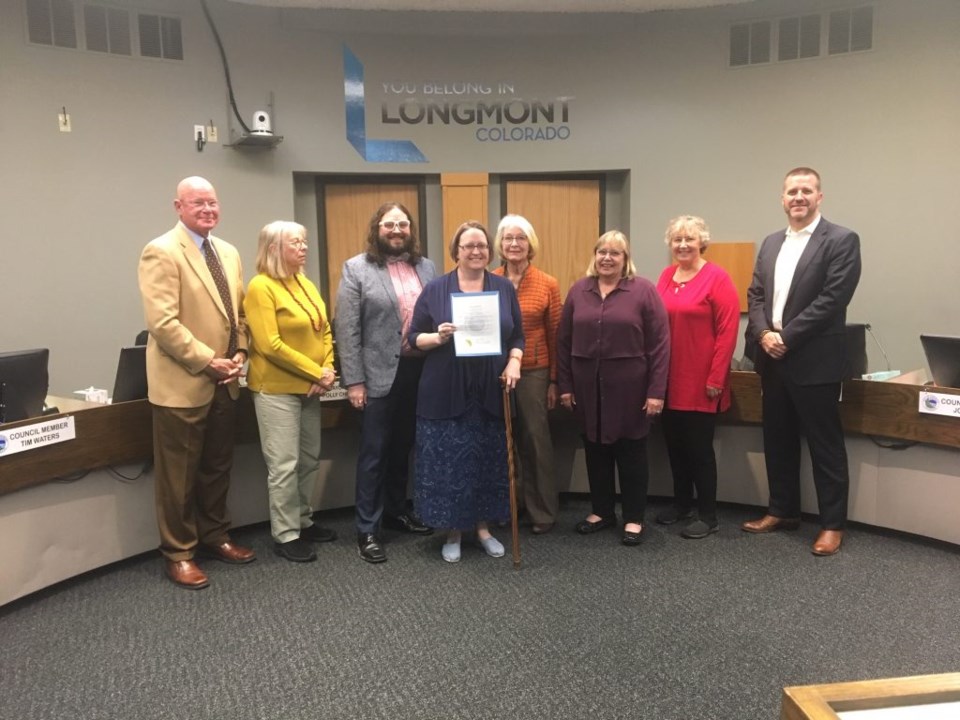This content was originally published by the Longmont Observer and is licensed under a Creative Commons license.
At the May 7, Longmont City Council two proclamations were made. The first proclaimed May 5-11 "Drinking Water Week". The other proclaimed the month of May 2019 as "Archaeological and Historic Preservation Month."
"Drinking Water Week" has been celebrated for more than 40 years by the American Water Works Association and its members. It is "a unique opportunity for both water professionals and the communities they serve to join together in recognizing the vital role water plays in our daily lives," states city council communication.
Dale Rademaker, Longmont deputy city manager, spoke on behalf of the proclamation, stating, "I think we are incredibly fortunate, council you know that, that the city's water supply, we take it very seriously. We appreciate this proclamation."
The City of Longmont is releasing, later this week, a drinking water report explaining to customers what is in their drinking water.

For the second proclamation of the evening, Mayor Bagley recognized May as Archaeological and Historic Preservation Month.
Archaeological and Historic Preservation Month is an effort by the National Trust for Historic Preservation nationwide. This effort encourages citizens to "recognize, celebrate, and participate in archaeological and historic preservation at the local, state, and federal level," states city council communication.
Karen Bryant, staff liaison to the Historic Preservation Commission, spoke on behalf of the proclamation stating, "The theme this year is Ethno-Botany, it is understanding the cultural use of plants in Colorado. In Colorado, many cultures, including the Ute and Apache tribes and later the Hispano community were extricably connected to the diverse plants and habitats found throughout the state. Combining traditional and ecological knowledge with archaeological data, such as current research in the San Luis Valley creates more holistic understanding of past life experiences."
Historic walking tours through the Longmont Museum of the East Side Historic Neighborhood, the West Side Historic Neighborhood, Historic Downtown, and Historic 3rd Ave. Registration is required to participate in the tour. To register call the Longmont Museum at (303) 651-8374.


